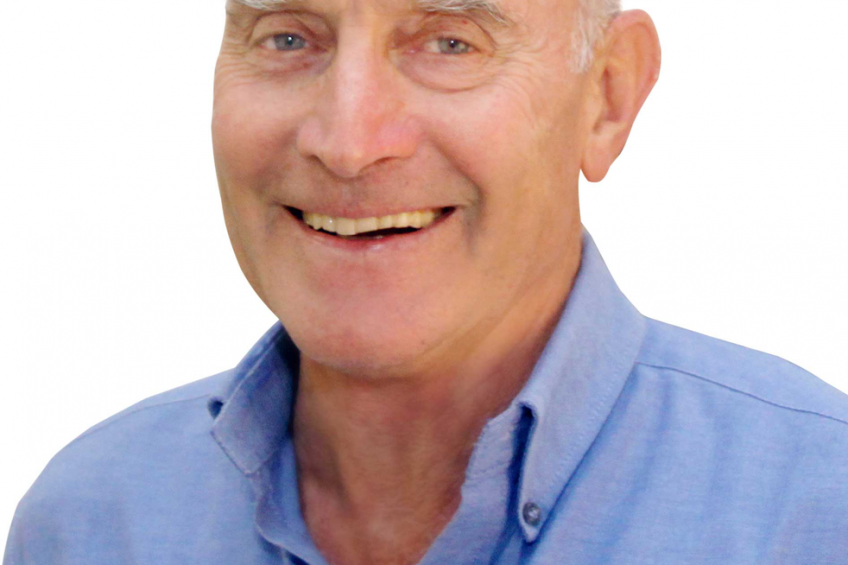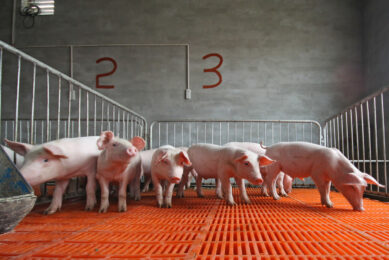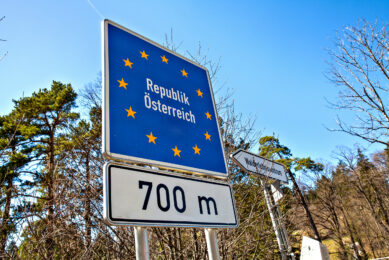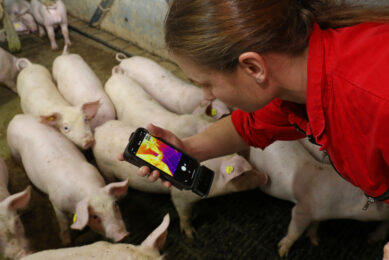The biggest threat is a breakdown of border control

Dr Francois van Niekerk is a leading South African veterinary surgeon, who has one of the country’s largest pig producers among his clients. He urges pig farmers around the world to devote more time to vaccination, biosecurity and surveillance.
By Roger Abbott
Vaccination, biosecurity and surveillance are vital to protect both the national and international health statuses of the pig industry, says Dr Francois van Niekerk, 67, who has a general farm animal practice in Humansdorp in the Eastern Cape, South Africa, but visits clients across the country.
During this interview, Van Niekerk calls on vets and producers in every country to work together more closely to protect their interests on a national basis. At the same time, he encourages pig vets to continue to share technical knowledge at international gatherings such as IPVS, ESPHM, APVS and so forth.
He believes this is important to guard against the spread of exotic diseases on a global basis, which is becoming an increasing threat as the pig industry gets more involved in international trade and the number of diseases threatening to jump across national borders grows.
Challenges
Asked what was the biggest disease challenge facing South African pig producers at present, Van Niekerk says: “There are several threats/challenges and not, in my opinion, a single ‘biggest’ challenge.”
“The diseases that can be seen as a challenge to South African pig producers at present include Porcine Circovirus (PCV2) and Glässer’s disease, while the current international hot topic is PEDV and our national herd would be highly susceptible should that virus get into South Africa.”
Van Niekerk believes that erosion diseases such as M. hyopneumoniae, pose a constant threat in South Africa, even to high health herds, because of the possibility of the diseases being spread by the wind. He adds, “Fortunately our pig farms tend to be spread over a wider area than in, for instance, Europe, so we may have a better chance against these particular challenges.”
And this is why he believes vaccination, biosecurity and surveillance are so important for national and international pig industries to practise, so as to protect themselves and the global business generally.
Asked if he thinks vets and producers should be doing more together on an international basis to guard against this danger of exotic diseases crossing borders and continents, Van Niekerk said that the standards of biosecurity of most commercial piggeries in South Africa are very good.
However, he feels that the idea of international co-operation had become a cliché. “Each country looks after itself. The biggest threat is a breakdown of border control.”
“Veterinarians and producers in individual countries need to work together to protect their interests on a national basis. At the same time, the veterinarians should continue to talk to each other and share their knowledge at international events such as IPVS, ESPHM, Abraves, APVS so that they can learn lessons from each other.”
Setting an example
South African pig vets are already setting an example by working with their colleagues in other parts of Africa to try and upgrade the continent’s pig status, albeit on a limited basis, he points out. “Dr Marie-Lou Penrith has played a major role in investigating African Swine Fever (ASF) in sub-Saharan Africa and assisting with control measures for this particular disease. In addition, the president of the Zimbabwe Veterinary Association is a member of our Pig Veterinary Society in South Africa.”
He feels that this sort of cooperation between neighbouring countries is important to help combat disease challenges that could be launched via illegal, as well as legal cross-border challenges, as well as by natural means.
Van Niekerk is however adamant that a big challenge to the South African pig industry is, in fact, the danger of diseases getting through border controls via the illegal importation of swill, which is still banned in other parts of the world, such as the European Union following the BSE scare in cattle.
“We need constant vigilance at all our sea ports, as well as airports and the land border controls are to prevent the illegal entrance of any feed waste,” he says in a plea that will be understood by pig industry leaders around the world.
The most recent incidence of Foot and Mouth Disease (FMD), which caused great hardship in the UK and other parts of the EU at the beginning of this century, was thought to have been started by imported food waste. “PRRS, CSF and FMD pose specific risks to our national herd,” says Van Niekerk. “And FMD on our borders is a constant threat. In addition, of course, we are also facing the danger of PEDV getting into the country.”
High health status
Getting down to the day-to-day health issues facing pig producers in South Africa and calling on his years of experience in the pig industry, Van Niekerk says that maintaining a high health status has always been a challenge for producers who have had to be very vigilant to ensure that there was no breakdown in good husbandry practices or their biosecurity systems.
In South Africa, this was very often dependent on being able to provide education and training needed to continually motivate the labour force and counter apathy, and prevent any slackening or breakdown in the good husbandry and biosecurity systems practised on most of the country’s commercial farms.
At the same time, South Africa’s producers were also contending with the worldwide move towards higher welfare production and dealing with concerns voiced by consumers, Van Niekerk says. “We are already working towards a partial ban on sow stalls as from 2020, when we must ensure that 50% of the sow’s gestation occurs outside the stalls. We are also involved in continuing discussions and liaisons with animal welfare bodies here, such as the Society for the Prevention of Cruelty to Animals (SPCA).”
Touching on another health (and welfare) issue that is affecting pig producers around the world, Van Niekerk says there are currently no regulations yet in the country governing the use of antibiotics to treat pigs, other than the usual withdrawal periods and no moves to reduce them voluntarily to counter resistance problems.
The veteran pig vet is confident that there will be some growth within the South African industry in the long term. But, he concludes, it is unlikely to witness any immediate boost due to the current high costs of the inputs and limited demand
BIOGRAHPY
Dr Francois van Niekerk graduated with a BVSc at the world renowned Onderstepoort Veterinary Institute, which is part of the University of Pretoria in the Western Cape of South Africa in 1978. Previous to that, he gained a degree in animal husbandry at the University of Stellenbosch near Cape Town and worked in agriculture for a number of years. After qualifying as a vet, Van Niekerk went into private practice in Humansdorp, a traditional farming area in the Eastern Cape where he has been looking after pigs and dairy cattle mainly, as well as some wildlife for the past 35 years. However, his expertise as a pig vet has meant frequent travel to other parts of the country to treat pigs on some larger commercial farms. Recently, he has also been doing some work for the IPVS.











